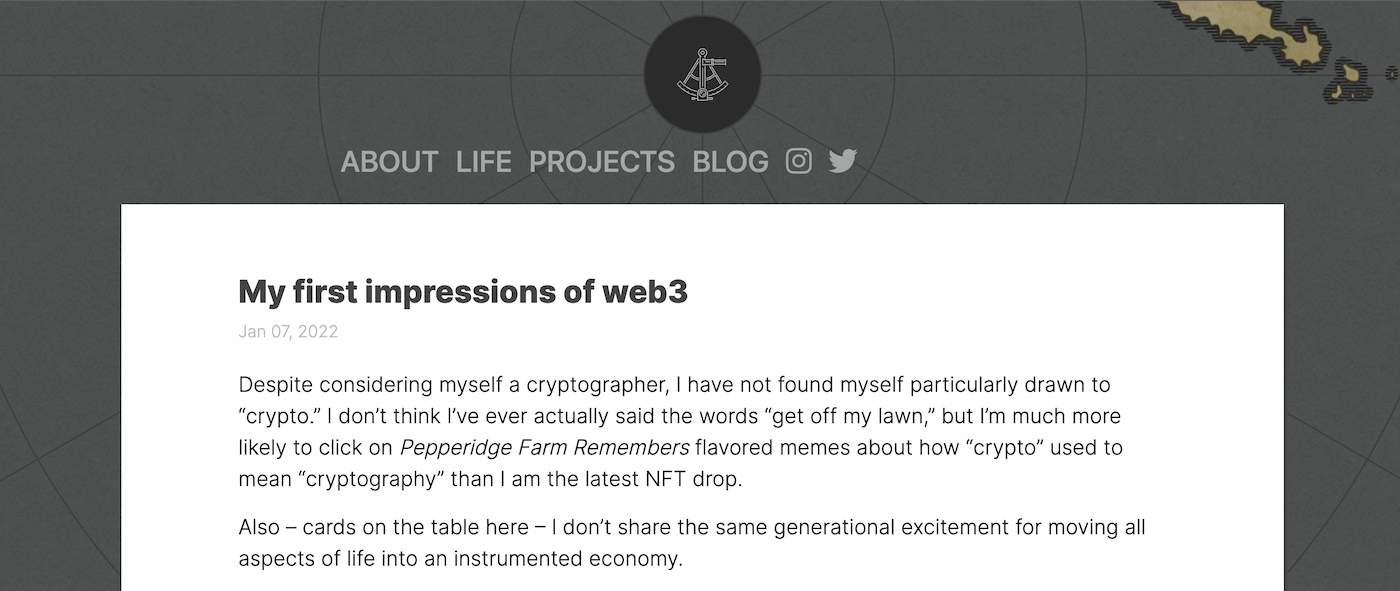Leadership in DAOs vs. traditional startups. Plus, DeFi & better Web3 critique

Click here to view this email in your web browser
Greetings all,
In this week’s episode of Ventures, my guest Liz Sweigart (PhD in Organizational Leadership) and I discuss the differences between a DAO and a traditional startup in terms of starting, organizing, and leading. We talk about trust vs. relating, identity considerations in DAO communities, positive vs. exploitative transactions of value, and qualitative vs. quantitative measurement of success. If you would like to join us as we explore starting a DAO together, check out https://www.redpilldao.xyz/ and our Discord server (https://discord.gg/PvtMZf6yws).
Check it out: Leadership, trust, and identity considerations when starting a DAO vs. a traditional startup :: with Liz Sweigart, PhD
Decentralized Finance (DeFi)
DeFi is a suite of “on-chain” networks, products, and services that are disrupting the traditional global banking system. This includes helping more people get access to financial instruments to participate more fully in the global economy.
In addition to the concepts I’ve talked about at length, stablecoins are a key “medium of exchange”, “unit of account”, and “store of value” (i.e. three key aspects needed for any broadly-used currency). The problem with coins such as BTC, ETH, etc.. is that their value fluctuates rapidly, which doesn’t make these coins ideal as a medium of exchange.
The list of DeFi projects and tools out there is far too vast to list here, but some notable examples include:
- Uniswap - automated market-making, decentralized crypto trading protocol.
- Aave - open source and non-custodial liquidity protocol for earning interest on deposits and borrowing assets.
- Oasis - Borrow a stablecoin (Dai) against your collateral
- And many, many more listed here by market cap.
Better Web3 critique
On Friday this past week, Moxie dropped an article: My first impressions of web3. The article does a good job critiquing the relatively centralized nature of many web3 infrastructure tools today (and how NFTs can be messed with via the URL they point to from their on-chain record).
Dan Finlay (co-founder at MetaMask) wrote up a pretty solid response that I resonate with: What Moxie Missed on Web3 Wallets.
In addition, it’s hard to overstate the importance of The Graph in terms of decentralized API layers and the progressive decentralization of “all the things”.
Overall, my general take is that the type of critique that Moxie offered is extremely important to promote and encourage. There are SO many exciting things going on in Web3 that it’s far too tempting to ignore the weaknesses. If anything, being acutely aware of the weaknesses - similar to running a startup - better informs us where to focus attention to make things better. (Thanks, Moxie.)
Have a great rest of your week!
~Will